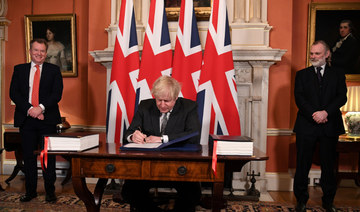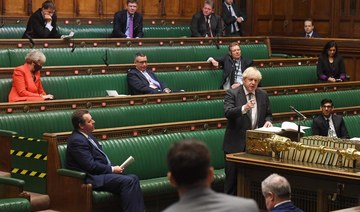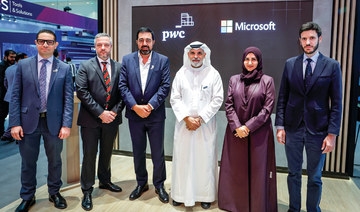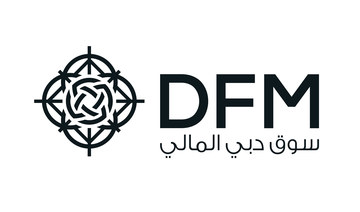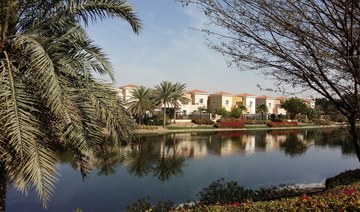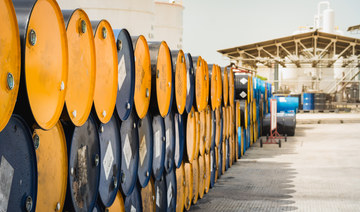CALAIS, France: Scores of heavy goods vehicles on Friday passed through the Channel Tunnel connecting Britain and France “without any problem,” its operator said, dispelling fears of immediate snarl-ups as Brexit took effect.
Almost 200 lorries crossed into France and left the country for the UK after Britain formally left the EU customs union and single market at midnight in the final act of its exit from the EU, operator Getlink said.
“The traffic was strong enough for an exceptional and historic night, everything went well,” a spokesperson for the group told AFP.
“All the trucks completed the formalities” required by the fact Britain is no longer part of the EU customs union. “None of the lorries were sent back,” the spokesperson said.
French officials have insisted that disruption at the frontier in Calais in northern France is being minimized by a so-called “smart border.” Hauliers are required to enter information about their freight online in advance with only a rapid scan needed at the border.
Once this is done the trucks can either be waved through with a green light or subjected to extra checks if given an orange one.
Officials also say that British businesses have also stockpiled for January, which is also a relatively quiet month with little activity after Christmas.
The first vehicle to pass through heading for Britain was a heavy goods vehicle from Romania carrying post and parcels, which was symbolically given the go-ahead by Calais Mayor Natacha Bouchart.
“I am very happy, it is a privilege for me,” said its driver Toma Moise, 62.
Bouchart, who pressed the button allowing the lorry to leave, said it was a “historic moment” adding that going back to customs checks after the UK’s near half century of EU membership “will have consequences whose range we don’t yet know.”
There had been immense bottlenecks of traffic after France briefly closed the border in late December when a new coronavirus variant was found in Britain.
But with all drivers coming in now taking tests before entering France, the backlog was cleared just in time for the completion of Brexit.
Cross-Channel traffic smooth in France as Brexit kicks in
https://arab.news/r7k5m
Cross-Channel traffic smooth in France as Brexit kicks in
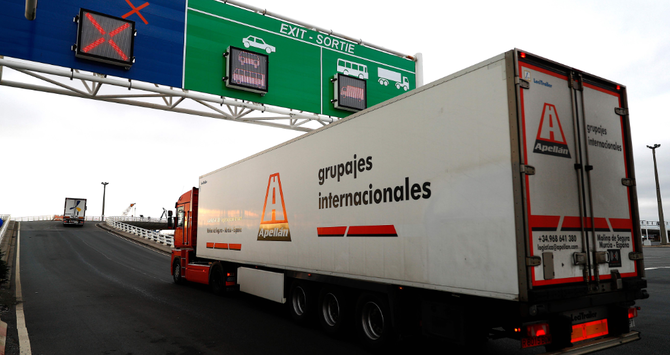
Microsoft to invest $1.5bn in UAE-based AI firm G42
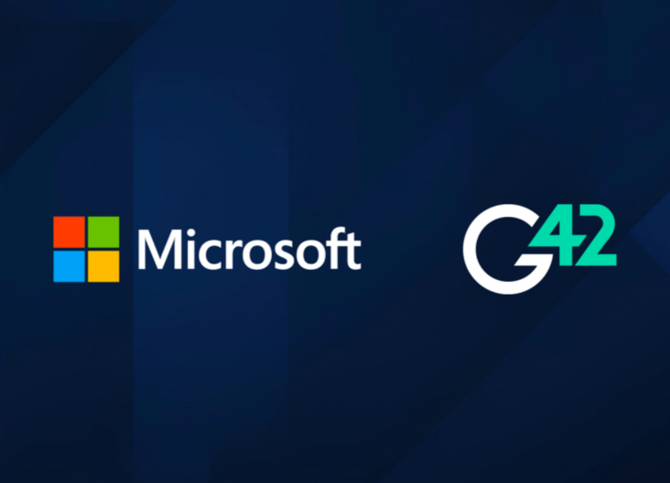
RIYADH: Global tech giant Microsoft will invest $1.5 billion in the UAE-based artificial intelligence technology company G42, aiming to offer the latest AI solutions and skilling initiatives.
As part of the deal, G42 will grant the US firm a minority stake and Brad Smith, Microsoft’s vice chair and president, will join the Emirati firm’s board of directors, according to a press release.
Smith said: “Our two companies will work together not only in the UAE, but to bring AI and digital infrastructure and services to underserved nations.”
He added: “We will combine world-class technology with world-leading standards for safe, trusted, and responsible AI, in close coordination with the governments of both the UAE and the United States.”
The deal will see G42 utilizing Microsoft Azure to run its AI applications and services, partnering to deliver advanced solutions to global public sector clients and large enterprises.
Moreover, the companies will collaborate to bring advanced AI and digital infrastructure to nations in the Middle East, Central Asia, and Africa, ensuring equitable access to services, the release added.
“Microsoft’s investment in G42 marks a pivotal moment in our company’s journey of growth and innovation, signifying a strategic alignment of vision and execution between the two organizations,” said Tahnoon bin Zayed Al-Nahyan, chairman of G42.
“This partnership is a testament to the shared values and aspirations for progress, fostering greater cooperation and synergy globally,” he added.
The agreement also encompasses a $1 billion investment in a fund for developers, which aims to bolster the creation of a skilled and diverse AI workforce, as well as foster innovation and competitiveness for the UAE and the broader region.
UAE grocery store chain Spinneys to float 25% stake on Dubai Financial Market
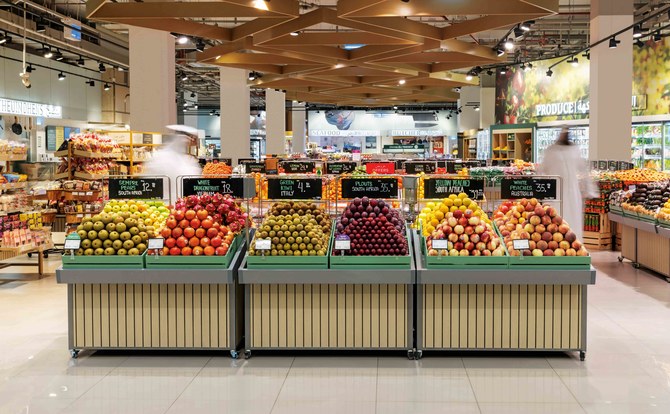
RIYADH: UAE-based grocery store operator Spinneys 1961 Holding PLC has announced its intention to proceed with an initial public offering on the Dubai Financial Market.
Al Seer Group, Spinney’s parent company and the selling shareholder, expects to sell 25 percent of the total issued share capital of the firm, equivalent to a total of 900 million shares.
The IPO’s subscription period will begin on April 23 and the DFM listing is set for May 9, the company said in a release.
The offering will be made available to UAE retail investors with 5 percent or 45 million shares in the first tranche, while the second tranche will provide professional stakeholders with 855 million shares.
Dubai’s high-end property sales rise on overseas demand
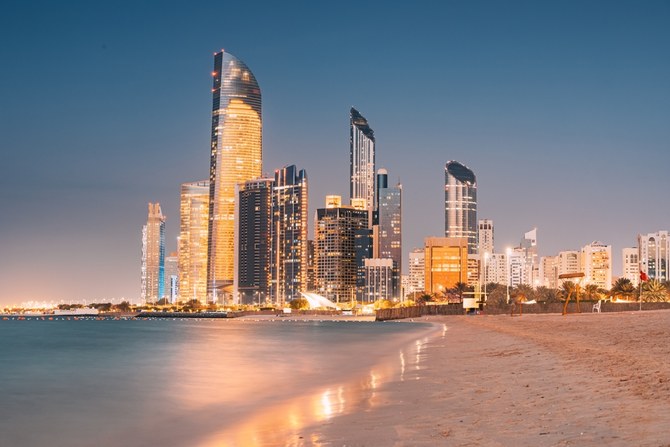
DUBAI: Sales of homes in Dubai worth $10 million or more rose 6 percent in the first quarter versus last year, an industry report showed on Tuesday, as demand from the international ultra-rich for homes in the emirate showed little sign of abating, according to Reuters.
A total of 105 homes worth an overall $1.73 billion were sold from January to March, up from around $1.6 billion a year earlier, according to property consultancy Knight Frank.
Activity was dominated by cash buyers, with palm tree-shaped artificial island Palm Jumeirah the most sought-after area, accounting for 36.3 percent of sales by total value, followed by Jumeirah Bay Island and Dubai Hills Estate.
Home to the world’s tallest tower, the UAE’s Dubai is seeking to grow its economy through tourism, building a local financial center and by attracting foreign capital, including into property.
The recent property boom has shown signs of fizzling out, however, with developers, investors and brokers worrying whether a painful correction akin to the slump that rocked the emirate in 2008 can be avoided.
Last year, Dubai ranked first globally for number of home sales above $10 million, selling nearly 80 percent more such properties than second-placed London, according to Knight Frank.
The city also bucked the trend of falling luxury prices seen in cities like London and New York last year, posting double-digit gains, Knight Frank said in February.
“The level of deal activity in Dubai continues to strengthen, particularly at the top end of the market, where the near constant stream of international high-net-worth-individuals vying for the city’s most expensive homes persists,” said Faisal Durrani, Knight Frank’s head of research for Middle East and Africa.
Durrani told Reuters Dubai was aided by the relative affordability of its luxury homes, where well-heeled buyers can purchase about 980 sq. feet of residential space for $1 million, “about three or four times more than you would get in most major global gateway cities.”
The strong demand suggests many international investors are acquiring Dubai property for second homes rather than “constant buying to flip,” he said, referring to the past practice of buying in order to sell to others quickly for more money.
Oil Update — prices rise on China growth, Middle East tensions
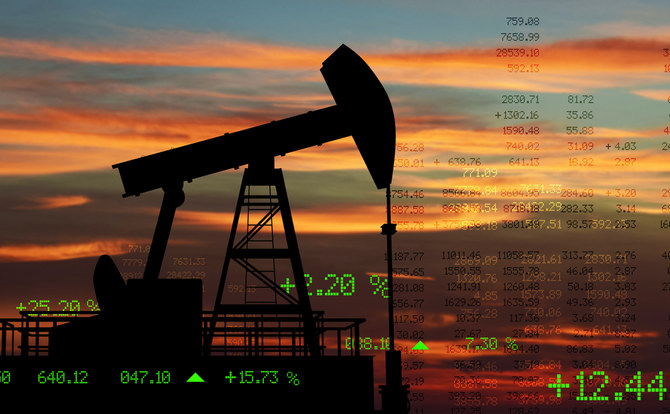
SINGAPORE: Oil prices rose on Tuesday after data showed China's economy grew faster than expected, while heightened tensions in the Middle East also kept markets on edge after Israel said it would respond to Iran’s weekend missile and drone attack, according to Reuters.
Brent futures for June delivery rose 20 cents, or 0.2 percent, to $90.30 a barrel by 10:57 a.m. Saudi time. US crude futures for May delivery rose 21 cents, or 0.3 percent, to $85.62 a barrel.
Earlier in the day oil prices had risen nearly 1 percent following the release of official data from China showing gross domestic product in the world’s biggest oil importer grew 5.3 percent in the first quarter, year-on-year, comfortably beating analysts’ expectations.
However, both benchmarks pared some gains as a raft of other Chinese indicators including real estate investment, retail sales and industrial output showed demand remained weak in the face of a protracted property crisis.
Oil prices soared last week to the highest levels since October, but fell on Monday after Iran’s weekend attack on Israel proved to be less damaging than anticipated, easing concerns of a quickly intensifying conflict that could displace crude barrels.
“Israel’s response will determine whether the escalation ends or continues. The conflict could still be contained to Israel, Iran and its proxies, with possible involvement of the US,” analysts at ANZ Research said in a note on Tuesday.
Israel’s Prime Minister Benjamin Netanyahu on Monday summoned his war cabinet for the second time in less than 24 hours to weigh how to react to Iran’s first-ever direct attack on Israel.
Iran produces more than 3 million barrels per day of crude oil as a major producer within the Organization of the Petroleum Exporting Countries.
World Bank raises Saudi Arabia’s 2025 GDP growth forecast to 5.9%
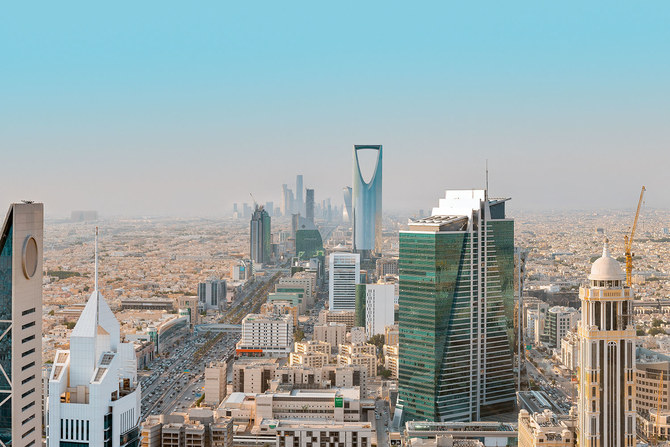
RIYADH: The World Bank has raised its expectations for Saudi Arabia’s economic growth to 5.9 percent in 2025 from 4.2 percent predicted earlier in January.
In its latest report the bank, however, revised its 2024 forecast for the Kingdom’s gross domestic product growth downward to 2.5 percent from an earlier forecast of 4.1 percent.
Concurrently, the overall GDP growth forecast for Gulf Cooperation Council countries in 2024 has been reduced to 2.8 percent, down from 3.6 percent, while the 2025 forecast has been revised to 4.7 percent from 3.8 percent.
The report also adjusted the UAE’s GDP growth forecast to 3.9 percent for 2024, up from the previously projected 3.7 percent, with a further rise to 4.1 percent in 2025, from 3.8 percent.
Kuwait’s economy is expected to expand by 2.8 percent in 2024 and increase further to 3.1 percent in 2025.
Similarly, Bahrain’s economy is likely to grow by 3.5 percent in 2024 and 3.3 percent in 2025, marking an increase from January’s projections.
Meanwhile, Qatar’s economy saw a downward revision for its 2024 forecast from 2.5 percent to 2.1 percent but an upward revision for 2025 from 3.1 percent to 3.2 percent.
Oman’s economy projections for 2024 and 2025 saw a marginal increase of 0.1 percent since the January forecast.
This adjustment reflects the broader economic trends where the surge in oil prices following Russia’s invasion of Ukraine in 2022 bolstered oil-exporting economies in the Middle East and North Africa.
In contrast, economic growth in non-oil-exporting nations — including MENA oil importers like Djibouti, Jordan, Morocco, Tunisia, and the West Bank and Gaza — has slowed.
By 2024, the growth disparity between GCC oil exporters and developing oil importers is expected to narrow to just 0.9 percentage points, marking a significant shift from 2022 when GCC countries grew 5.6 percentage points faster, the report stated.
“Developing oil exporters will grow 2.8 percent in 2024, down from 3.1 percent in 2023 while growth in developing oil importers is forecasted to decrease to 2.5 percent in 2024, down from 3.1 percent in 2023,” the report stated.
Overall, the MENA region is expected to achieve a growth rate of 2.7 percent in 2024, which aligns with pre-COVID levels but still trails the global average.
While other emerging markets and developing economies are also projected to remain below pre-pandemic growth rates, they are expected to surpass the MENA region by 1.2 percentage points in 2024.



